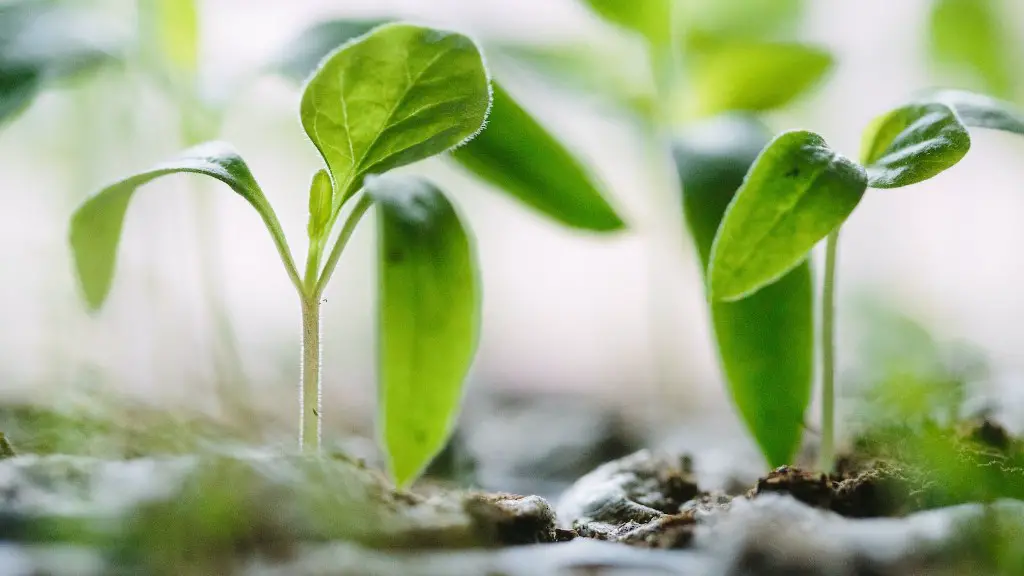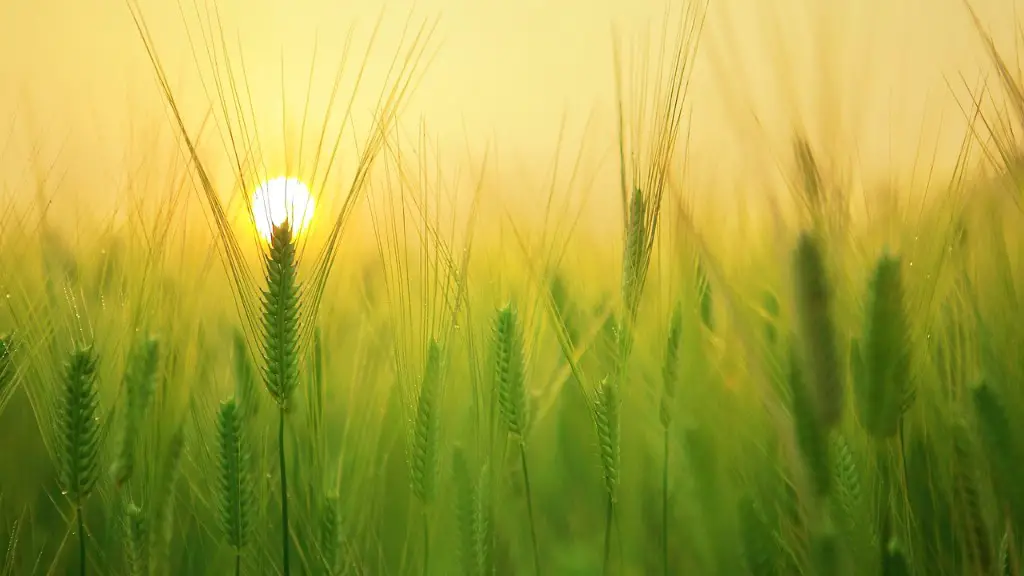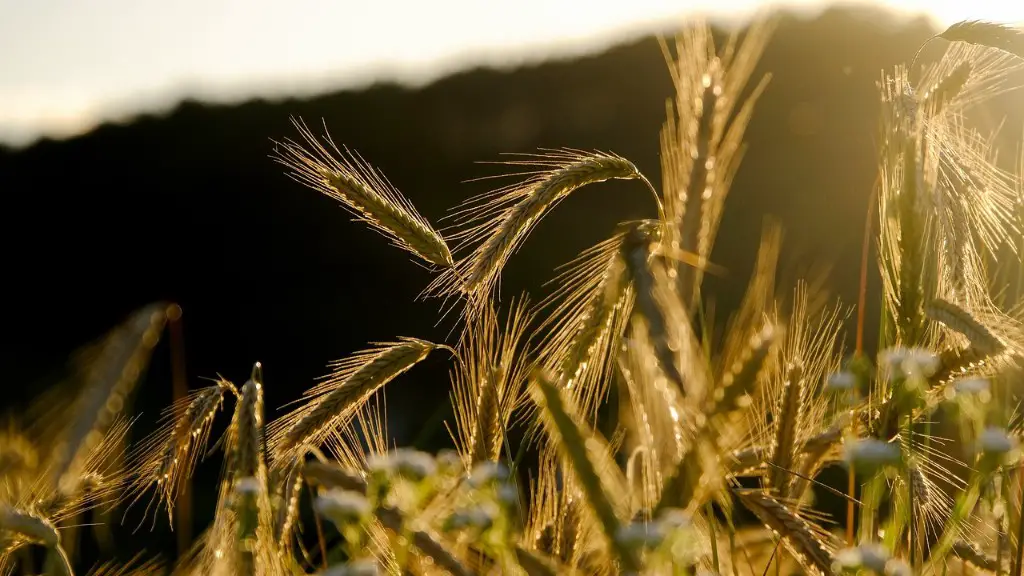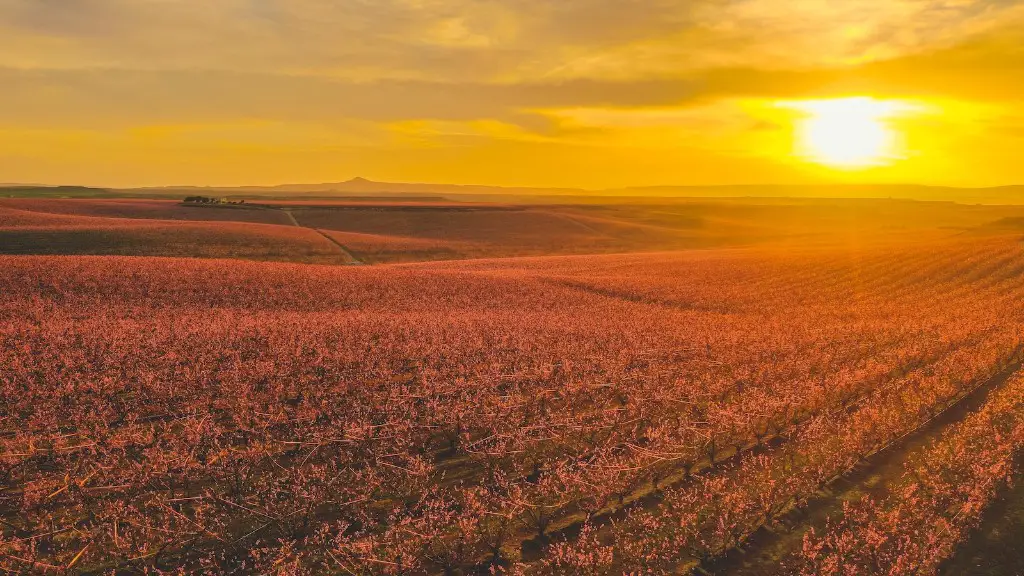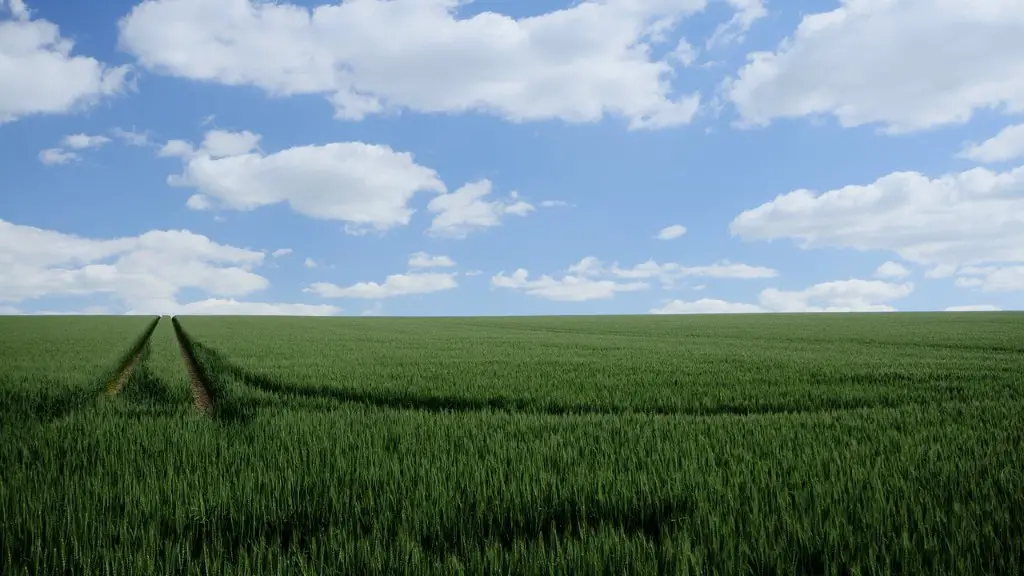Agriculture has a significant impact on water quality. Runoff from agricultural lands can contain a variety of pollutants, including chemicals from fertiliizers and pesticides, that can deteriorate water quality. In addition, livestock can contaminate water resources with bacteria and other pathogens. Improperly managed agricultural lands can also lead to soil erosion, which can cause sedimentation and other deleterious effects on water quality.
Agricultural production—particularly livestock production—is a major source of water pollution in the United States. The EPA estimates that agriculture is the leading source of water pollution in rivers and streams, and a major source of pollution in lakes, reservoirs, and ponds. The main sources of agricultural water pollution are animal wastes, chemicals from farmlands and feedlots, and soil erosion.
Animal wastes can contaminate water with bacteria, viruses, and nutrients. High concentrations of these contaminants can make people sick and impair the use of water for swimming, fishing, and other activities. Chemicals used on farmlands and in feedlots, such as pesticides, fertilizers, and livestock feed, can also contaminate water. They can also cause problems if they enter the groundwater. Soil erosion from farm fields can also contaminate water with sediments and other pollutants.
How does agricultural affect water quality?
Agricultural contaminants can have a significant impact on the quality of surface water and groundwater. Fertilizers and pesticides can easily become runoff and infiltrate local streams, rivers, and groundwater. This can lead to a decrease in water quality and an increase in the spread of harmful chemicals and pollutants.
It is important to be aware of the potential effects of poor water quality on food crops and human health. Consuming contaminated food can lead to serious illness, and irrigating crops with contaminated water can exacerbate the problem. It is therefore crucial to take measures to ensure that water used for irrigation is of good quality.
Is agriculture the leading cause of water pollution
The National Water Quality Assessment (NWQA) was released in 2018 and it showed that agricultural runoff is the leading cause of water quality impacts to rivers and streams. This is the third leading source for lakes, and the second largest source of impairments to wetlands. The NWQA is an important tool that can be used by policy makers to help address water quality issues in the United States.
Agricultural nonpoint source pollution, or pollution via runoff, is a leading source of water pollution. This type of pollution occurs when rain or irrigationwater carries pollutants from the land into waterways. Agricultural nonpoint source pollution can contaminate water with pesticides, herbicides, fertilizers, and other chemicals. This pollution can harm aquatic life, make water unsafe for swimming and drinking, and degrade the quality of water for other uses.
What are 3 ways that agricultural land can cause water pollution?
Agricultural runoff is the water that runs off from farmland after rain or irrigation and carries with it any soil, pesticides, or other pollutants that are on the land. Runoff from agricultural land is a major source of water pollution, particularly in areas where the land is not managed well.
Overgrazing is another major problem that can lead to agricultural runoff. When animals graze on land, they can trample and compact the soil, which makes it more difficult for water to infiltration and can lead to greater runoff. Overgrazing can also lead to the loss of vegetation, which can further increase runoff.
Overworking the land, for example by plowing too often, can also lead to agricultural runoff. This is because the soil can become compacted, making it harder for water to infiltration and leading to greater runoff. Poorly managed and ineffective application of pesticides, irrigation water, and fertilizer can also contribute to agricultural runoff.
It is important to be mindful of the impact that our farming activities can have on the environment, specifically in terms of water pollution. Excessive use of pesticides and chemical fertilizers can lead to leaching in groundwater and drains into surface water bodies, which can detriment the aquatic ecosystem. We need to be conscious of our use of these products and take measures to reduce their impact on our water sources.
How does agriculture waste water?
Agricultural wastewater is any water that is contaminated with pollutants as a result of agricultural activities. There are many sources of agricultural wastewater, and the type of pollutants present in the wastewater will depend on the specific agricultural activities taking place. Some common examples of agricultural wastewater include manure, milking center wash water, barnyard and feedlot runoff, egg washing and processing, slaughterhouse wastewaters, horse washing waters, and runoff associated with composting.
Irrigation is often seen as a key driver of increased agricultural production. By expanding the cultivable area beyond that which is possible under rainfed agriculture, and by increasing crop yields, irrigation can play a significant role in boosting agricultural production. In many cases, irrigation can also help to improve the quality of crops, making them more resistant to pests and diseases.
How much water is lost in agriculture
It is estimated that on average, farms around the world account for 70% of all water that is consumed annually. Of that 70% used by farmers, it is estimated that 40% is lost to the environment due to poor irrigation systems, evaporation, and overall poor water management. This is a significant amount of water that could be conserved if farmers adopted more efficient irrigation and water management practices.
Water-intensive crops are crops that require a lot of water to grow. Rice, soybeans, wheat, sugarcane, cotton, alfalfa, and pasture are all water-intensive crops. These crops are often grown in areas with high rainfall, or where irrigation is available.
What are the impacts of agriculture?
Agriculture is the leading source of pollution in many countries. Pesticides, fertilizers, and other toxic farm chemicals can poison fresh water, marine ecosystems, air, and soil. They also can remain in the environment for generations, causing long-term damage.
Agriculture is the largest water user worldwide and it is important to note that it can account for up to 95 percent of freshwater withdrawals in some developing countries. This emphasizes the importance of proper water management in agriculture in order to help conserve this vital natural resource.
How can we save water in agriculture
Farmers are increasingly adopting practices that conserve water and help reduce the impact of drought. Here are 10 ways farmers are saving water:
1. Drip irrigation: Drip irrigation systems deliver water directly to a plant’s roots, reducing the evaporation that happens with spray watering systems.
2. Capturing and storing water: By capturing rainwater and runoff, farmers can store water for use during dry periods.
3. Irrigation scheduling: By using computerized irrigation systems, farmers can more precisely schedule watering, which can reduce water use by up to 30%.
4. Drought-tolerant crops: Farming drought-tolerant crops, such as certain varieties of wheat, can help reduce the need for irrigation.
5. Dry farming: Dry farming is a technique that reduces water use by relying on rainfall, rather than irrigation, to water crops.
6. Rotational grazing: Rotational grazing is a type of livestock husbandry that can help reduce water use by up to 50%.
7. Compost and mulch: Using compost and mulch can help reduce water loss from soil by up to 70%.
8. Cover crops: Planting cover crops, such as leg
Water is essential for agricultural production and food security. Irrigated agriculture represents a significant proportion of the total cultivated land and contributes a significant proportion of the world’s food supply.
What is the largest source of agricultural water pollution?
The agricultural industry is the leading source of water pollution in the United States. The most prevalent source of this pollution is soil that is washed off fields and into nearby lakes or streams. This can have a major impact on the ecosystem, as too much sediment can cloud the water and reduce the amount of sunlight that reaches aquatic plants. This can lead to a decrease in the amount of oxygen in the water, which can be devastating for fish and other aquatic creatures.
Conventional farming is not sustainable in the long run because it damages the environment and depletes natural resources. We need to transition to more sustainable methods of farming that protect the environment and conserve natural resources.
Warp Up
Agriculture affects water quality in a number of ways. Runoff from agricultural fields can carry pesticides and other pollutants into waterways. Animal agriculture can pollute water with bacteria and nutrients. And agricultural water use can decrease the availability of water for other uses and reduce water quality.
Agriculture has a huge impact on water quality. It is estimated that agriculture is responsible for 80% of the water pollution in the U.S. The main pollutants from agriculture are sediment, nutrients, pesticides, and animal waste. These pollutants can enter waterways through direct runoff from fields, or they can enter groundwater that eventually flows into surface water. These pollutants can cause a variety of problems, including eutrophication, contamination of drinking water, and harm to aquatic ecosystems.
